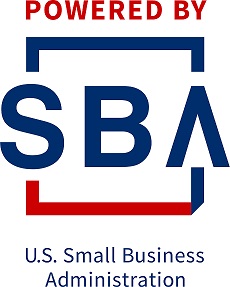Tax season is upon us and that means for many small business owners the next couple of weeks will be spent going through their records and dredging through receipts to try to cobble together a picture of their company’s finances over the last year. While more than 70% of small businesses outsource their tax preparation according to the 2015 Small Business Accounting Report, this doesn’t mean small business owners don’t have work to do. Even when outsourcing tax prep to a trusted accountant, a business owner still needs to prepare their financial records and statements.
As we recently learned in the Small Business Accounting Reportfrom Wasp Barcode Technologies, the biggest challenge for companies approaching tax season is accounts receivables/collections (50.80%), then cash flow (45.66%), followed by managing paperwork and receipts for taxes/annual audits (33.12%), and then keeping their accounting software accurate (28.30%). And those are just the top four. The bottom-line: Tax season can be a nightmare for even the most responsible and organized business owner.
With an eye toward preparing well for this year and with less to prepare next year, here are 5 simple tips for small businesses during tax season.
- Prepare as you go. Don’t wait until the last minute to tally your expenses or review your financial records or receipts. Jamie Bslaes at Small Business Computing explains that it is crucial to “keep close track of all business expenses throughout the year and enter them into your accounting system in a timely fashion.” This means recording expenses such as meals, entertainment, or gas mileage and keeping any receipts. But more than that this also means keeping notes and even daily diaries so you know exact information about the expense and why it was connected to your business. This information will be critical if you are audited by the IRS.
You can wait until the end of the year to complete these tasks because doing as you go will be more accurate and will save you time in the long run, 5-10 minutes a day or week can be much easier to find than hours or even days in February and March. Luckily, there are now a number of apps that can help make preparing as you go easier and more efficient.
2. Don’t let ghost assets haunt your tax return. Ghost assets can have a significant impact on your company’s bottom-line and your taxes. However, surprisingly, most small business owners don’t know what ghost assets are or how they impact a company’s taxes. In the Small Business Accounting Report, over 70% of small business leaders said they either didn’t know what ghost assets were or didn’t know how they impacted their taxes. A ghost asset is inventory or an asset that “cannot be accounted for because it is physically missing or rendered unusable.”
Avoiding ghost assets is easy with sophisticated inventory and asset management systems. Using an effective inventory management system, often including an inventory or asset management software solution, companies can easily prepare their inventory for end of year taxes and any potential audits.
3. Make the most of your deductions. As you prepare for tax season, keep in mind that tax rules are not just regulations to be followed; they are also a list of incentives to be used to your advantage. Taxes aren’t just about the government getting its due. In fact, many tax rules are exemptions and allow for deductions – they are essentially ways for the government to try and get you and your business to spend money the way the government wants. Often what the government wants you to spend money on is also what you want or even need to spend money on.
Work with your accountant to make sure you make the most of your potential deductions. Did you know car expenses (when the car is used for business) can be deducted? Do you work from a home office? Did you realize that your startup costs can also be deducted? There are many deductions you may have overlooked, so make sure to review the current rules and regulations, and hire an accountant who understands your business and can help you best assess your potential deductions.
4. Use accounting software and accountants. You probably didn’t start your own business because you love accounting (unless you started your own accounting business) so why burden yourself with all the complications of doing your own taxes or accounting tasks? An easy way to start your tax preparations is to use effective accounting software to keep track of your accounts, expenses, and payroll. The clear winner in the Small Business Accounting Report was Quickbooks, but there are plenty of options to choose from
Now, just because you’ve consulted WebMD doesn’t mean you don’t go to the doctor for a real checkup. The same is true with your taxes. Using software to help manage your accounting is great, but it doesn’t mean that a knowledgeable accountant can’t help you as well. Accountants keep track of all the changes in rules and regulations and they often know what to look for when it comes to deductions or potential liabilities. It is important to have a good handle on your books, but it’s equally important to consult an expert to make sure your taxes are done right and on time.
5. Set up a smart retirement fund. Contributions to your 401(k) or individual retirement account (IRA) are tax deferrable, meaning you won’t pay taxes on the income until you start withdrawing the money. This can significantly reduce your annual tax burden. For example, if you make $75,000 annually and contribute $15,000 to your retirement fund, you will only be taxed on $60,000 worth of income. When it comes to determining how much you can put into your retirement accounts, make sure to check local laws and regulations and consult with your accountant.
Yes, tax season can be taxing [pun intended], and owing money to Uncle Sam is never the goal; however, using the simple tips detailed above will help your small business enter tax season confidently and ready for success.
Drew Hendricks – Contributor




